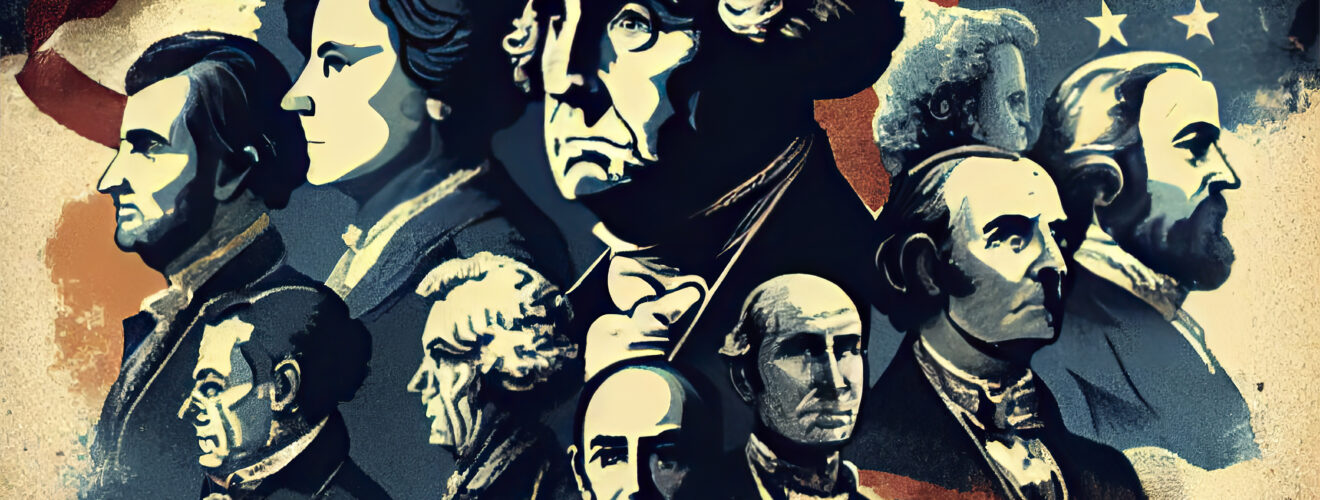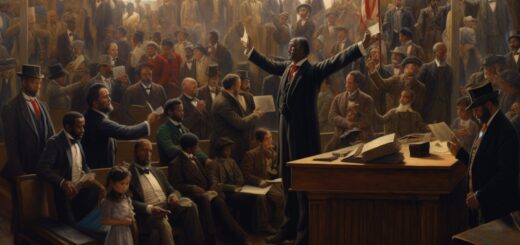Knows about American Presidents and their Legacies
The legacies of American presidents are shaped by their actions, policies, leadership style, and the historical context of their administrations. Here is a brief overview of some key U.S. presidents and their legacies:
George Washington (1789-1797)
- Legacy: First President of the United States, known for his leadership during the American Revolutionary War and his role in establishing the foundations of the new nation. Emphasized the importance of a strong federal government.
Thomas Jefferson (1801-1809)
- Legacy: Third President, author of the Declaration of Independence, and advocate for individual liberties. Expanded the United States through the Louisiana Purchase.
Abraham Lincoln (1861-1865)
- Legacy: Sixteenth President, led the nation through the Civil War, preserved the Union, and issued the Emancipation Proclamation, laying the groundwork for the abolition of slavery.
Theodore Roosevelt (1901-1909)
- Legacy: Twenty-sixth President, known for progressive policies, conservation efforts, and trust-busting. Expanded the national parks system and advocated for a “Square Deal.”
Franklin D. Roosevelt (1933-1945)
- Legacy: Thirty-second President, served during the Great Depression and World War II. Implemented the New Deal programs, significantly expanded the role of the federal government, and laid the groundwork for modern social safety nets.
Harry S. Truman (1945-1953)
- Legacy: Thirty-third President, succeeded FDR and made the decision to drop atomic bombs on Japan. Enacted the Marshall Plan, advocated for civil rights, and played a key role in the early years of the Cold War.
John F. Kennedy (1961-1963)
- Legacy: Thirty-fifth President, remembered for inspiring rhetoric, the Cuban Missile Crisis, and the establishment of the Peace Corps. Assassinated in 1963.
Lyndon B. Johnson (1963-1969)
- Legacy: Thirty-sixth President, escalated U.S. involvement in the Vietnam War. Passed significant civil rights legislation, including the Civil Rights Act of 1964 and the Voting Rights Act of 1965.
Ronald Reagan (1981-1989)
- Legacy: Fortieth President, known for conservative policies, economic reforms (Reaganomics), and a strong anti-Soviet stance during the Cold War.
Bill Clinton (1993-2001)
- Legacy: Forty-second President, presided over a period of economic growth. Known for welfare reform, the North American Free Trade Agreement (NAFTA), and his impeachment over the Monica Lewinsky scandal.
George W. Bush (2001-2009)
- Legacy: Forty-third President, led the U.S. through the 9/11 terrorist attacks. Implemented the Patriot Act and initiated the Iraq War.
Barack Obama (2009-2017)
- Legacy: Forty-fourth President, known for healthcare reform (Affordable Care Act), ending the Iraq War, and pursuing progressive social policies. First African American president.
Donald Trump (2017-2021)
- Legacy: Forty-fifth President, known for his unconventional leadership style, “America First” policies, and conservative appointments, including three Supreme Court justices.
Joe Biden (2021-present)
- Legacy (to be determined): Forty-sixth President, emphasizing unity and addressing the challenges of the COVID-19 pandemic, economic recovery, climate change, and social justice issues.
Each president’s legacy is subject to interpretation, and opinions may vary based on political perspectives and historical analyses. Additionally, the impact of a president’s legacy may continue to evolve over time.









